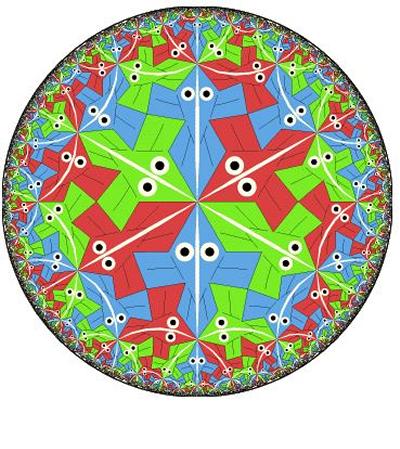Research Group: Noncommutative Geometry
The fundamental idea of noncommutative geometry is to study spaces through algebras of functions on them, using functional-analytic tools. Indeed, Gelfand's Theorem implies that all the information about a (compact Hausdorff, second countable topological) space is encoded in the algebra of (complex-valued, continuous) functions on the said space. This algebra can be represented as a commutative algebra of operators on a Hilbert space. By dropping the "commutative" requirement, we are entering the realm of operator algebras, which are instrumental in studying spaces which are "badly behaved" in the traditional sense, for example the space of representations of a discrete group; or a quotient of a space by a minimal action of a group.
